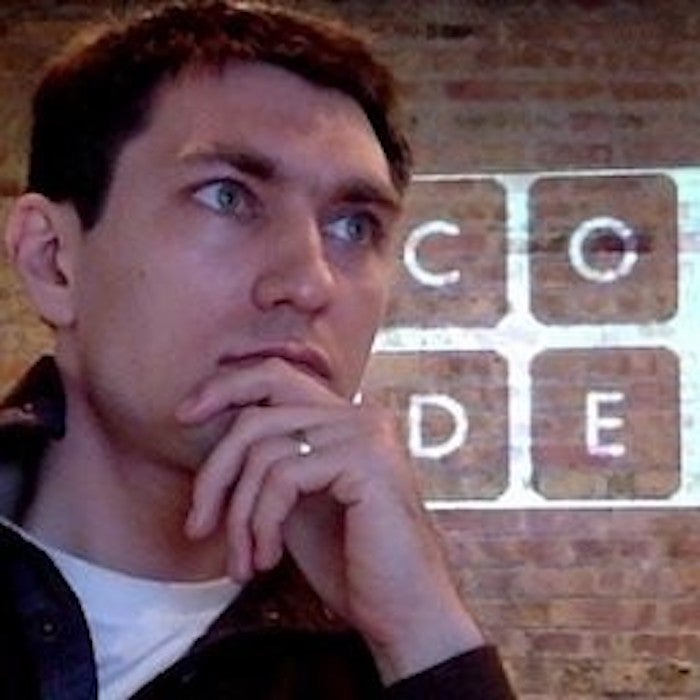Meet Senior Lecturer Baker Franke
Meet Senior Lecturer Baker Franke

This fall, Baker Franke joined the computer science teaching faculty as a senior lecturer. Franke has over 20 years of experience teaching computer science, and a passion for using computer science as a tool to understand the world.
Franke began teaching right out of college, at a small private school in Massachusetts.
“I realized that studying computer science changed my life,” Franke said. “I am a liberal arts person at heart, and see the world differently,” Franke said. “Computer science made me realize I am also a technical person and a math person.”
Franke said he came to view computer science as a tool to build things. As he continued to teach computer science he realized the subject is not part of the canon of American education, but the subject has the power to change people’s lives.
After a few years in Massachusetts Franke returned to the Chicago area, which is where he was raised. He began teaching at the University of Chicago Laboratory School in 2005. Shortly thereafter, he met Clinical Professor Dale Reed. He and Reed, along with other Chicago-area teachers, formed the first Computer Science Teachers Association (CSTA) chapter in Chicago. At the time many schools didn’t have dedicated computer science teachers; oftentimes a math teacher would provide instruction in the subject, if it was taught at all. Some schools—and parents—mistakenly defined computer science as keyboarding, browsing the internet and video games.
The CSTA sought to change that, and facilitated professional workshops in computer science for Chicago Public Schools (CPS) teachers, so that the subject could be taught more broadly in the system. In 2020, computer science became a required course for all CPS students, making Chicago the first large school district in the nation to require computer science education.
Franke said he field-tested various strategies and teaching methods while at the University of Chicago Laboratory School, which were incorporated into the CPS teaching model. While working at the lab school, Franke was named a Golden Apple Award: Excellence in Teaching Finalist, Teacher of Distinction, and also served on a panel at the White House in 2011 for efforts to get more women into STEM fields, as part of Barack Obama’s Champions of Change initiative.
Code.org®
Franke hoped to expand access to K-12 computer science education and joined the education nonprofit Code.org® in 2014. Franke led the development of a new Advanced Placement computer science course.
“I trained thousands of teachers who had never taken computer science themselves to teach an AP course,” Franke said. “It is amazing to me that 60% of students in the U.S. who take an AP computer science principles course use that curriculum.”
Most recently, Franke managed Code.org®’s internal data analytics team.
But Franke missed teaching and decided to return to it, accepting a faculty position with UIC.
“I felt like I’ll have a lot more impact here,” Franke said. “I wanted to support students, including those who don’t have any experience with computer science, who are historically underrepresented in the field, and who may have a lot of barriers and hurdles to overcome.”
Students who choose to major in computer science run the gamut from those who have had thousands of hours programming, to folks trying out their first computer science class.
“These students are taking a big risk, and to realize their classmates know so much more is really impossibly hard,” Franke said. “You have to acknowledge that as a teacher, and help struggling students realize they do belong.”
Franke is teaching CS 111, Program Design I, this semester and looks forward to shaping some students’ first formal exposure to the subject.
“I have a lot of empathy for the student experience when they’re first learning computer science. I don’t know how it ended up this way, but it’s literally all I think about,” Franke said. “I think about how to teach a particular concept that has eluded some students, and what is it that is blocking them–how can I remove it? It’s an endless quest.”